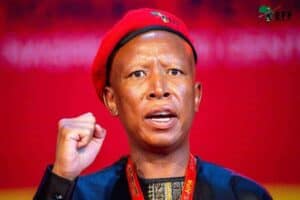Many people believe President Cyril Ramaphosa’s New Dawn will be given a boost by a dominant electoral victory.

South Africans have two days before they cast their votes at the general election and political parties have all wound down their campaigns.
The electioneering season was lukewarm. A total of 26.7 million South Africans registered to vote on Wednesday. Their votes will be a confirmation that the SA democracy is still vibrant.
The fact that almost half of the population registered is a sign that apathy has not yet gripped South Africans.
Various institutions have conducted electoral surveys and all have reduced these elections to a three-horse race featuring the governing ANC, the official opposition, the Democratic Alliance (DA) and the second-biggest opposition party, the Economic Freedom Fighters (EFF).
It is as if the other parties do not exist, particularly the new kids on the block, like the Land Party, Socialist Revolutionary Worker’s Party and the Good Party.
Intellidex released the most interesting survey.
It divided respondents into two categories: financial and nonfinancial. Financial respondents believe support for the ANC will be 57% to 58%, the DA from 19% to 22%, and the EFF from 9% to 12%.
Financial respondents are representative of the financial sector, which is always wary of political developments. The nonfinancial respondents are of the view that the ANC will gain from 55% to 60%, the DA from 19% to 23% and the EFF from 10% to 15%.
Nonfinancial respondents are political activists who are closer to their parties and believe in their policies.
The consensus among all the polling houses and institutions is that the ANC will still be the ruling party, the DA the official opposition and the EFF the second-biggest opposition party.
The area of disagreement is whether the ANC will govern with a reduced majority or still be above 60%. There is also no consensus on whether the DA will drop slightly, or remain where it was during the last general election. They do agree on the EFF’s phenomenal growth and unanimously projected support at double digits.
A question arises as to the meaning of these polls in political terms and this must be answered urgently and convincingly, as voters are hours away from the ballot boxes.
For the ANC, it means the majority of South Africans still trust them to govern. They believe that through its policies, their hopes and aspirations will be realised, despite the internal challenges the party faces.
Many people believe President Cyril Ramaphosa’s New Dawn will be given a boost by a landslide electoral victory. If the ANC wins with an outright majority, that would be a mandate to flush out all the corrupt elements within its ranks and all those who are found to be on the wrong side of the law must go to prison.
The DA is still held in high regard by the propertied class it represents so well in terms of its policies and direction. Its biggest challenge is the articulation and accommodation of policies that will favour and promote socioeconomic upliftment of the black people within the party.
The EFF’s Keynesian policies and Marxist rhetoric found resonance with young people. It looks like they are less concerned about the scandals that hang over the heads of the party leaders, such as the VBS saga and the EFF’s dubious relationship with Adriano Mazzotti.
Many believe the EFF will give them the residential land they desperately want. Indeed, it encouraged some shack dwellers to occupy vacant land and, to date, nobody has dared touch them.
Zamikhaya Maseti is a political economy analyst and MD of Ngubengcuka Consulting, based in Centurion.
For more news your way, download The Citizen’s app for iOS and Android.
Support Local Journalism
Add The Citizen as a Preferred Source on Google and follow us on Google News to see more of our trusted reporting in Google News and Top Stories.








